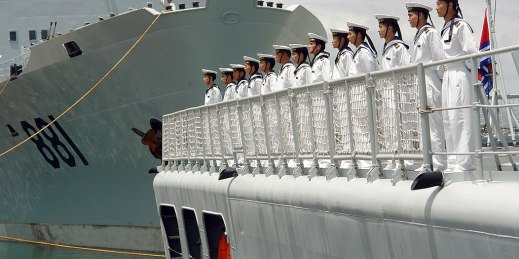
In mid-July, Mexican authorities captured Miguel Angel Trevino Morales, leader of the Zetas, a major Mexican drug trafficking organization known for its brutality. In an email interview, Brian Phillips, research professor at the Center for Research and Teaching in Economics (CIDE) in Mexico City whose research focuses on subnational political violence, discussed Mexico’s strategy of capturing or killing the leaders of drug organizations. WPR: What is the rationale behind Mexico’s kingpin strategy? Brian Phillips: Mexico focuses on arresting “kingpins,” high-level members of drug-trafficking organizations (DTOs), because it is trying to reduce the power and violence associated with these groups. The […]





